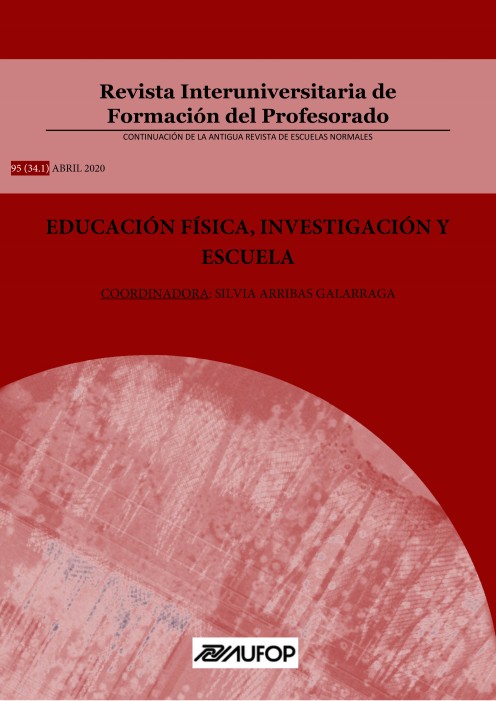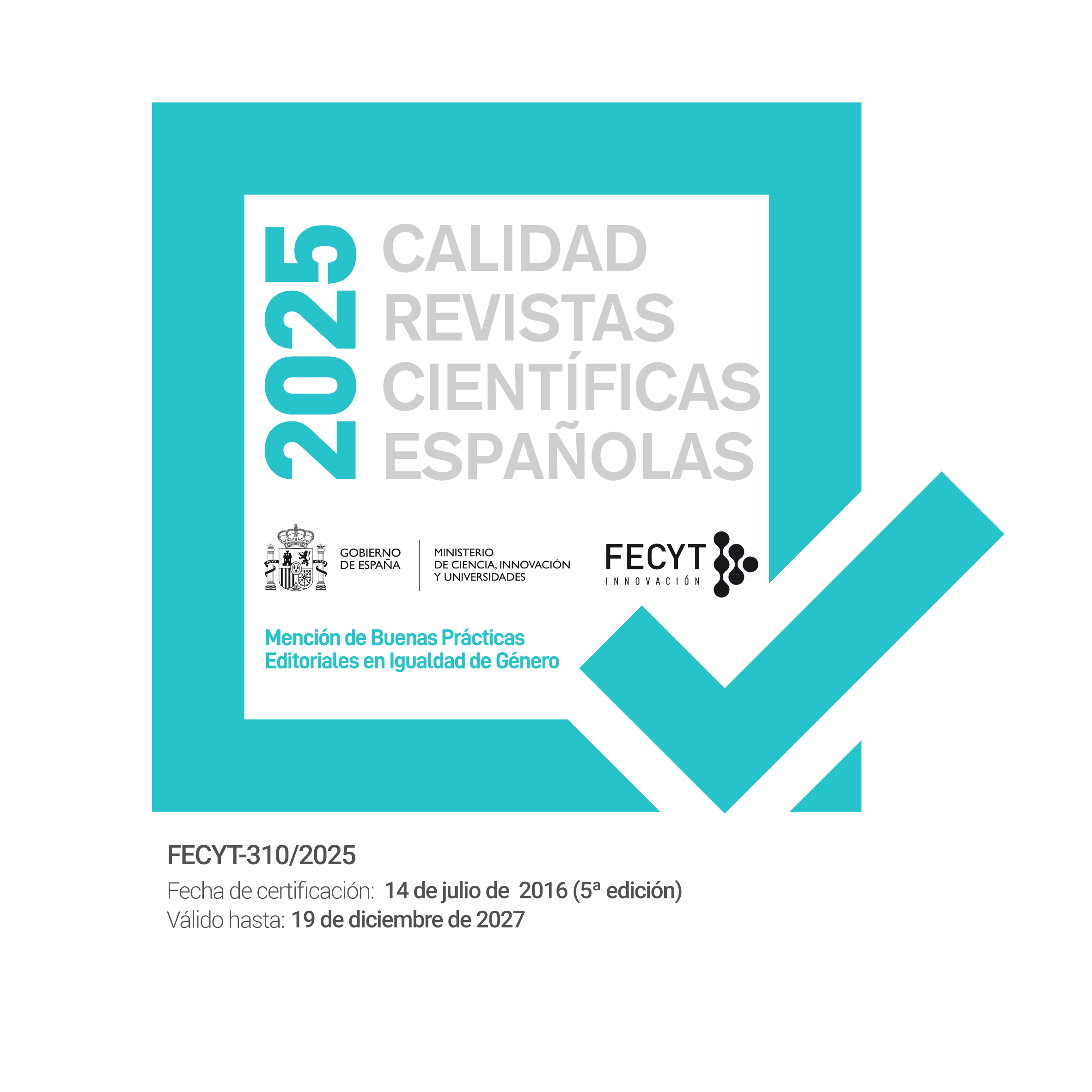Análisis de la percepción que tiene el futuro profesorado sobre el estado actual del mundo
DOI:
https://doi.org/10.47553/rifop.v34i1.75720Resum
El presente trabajo analiza el nivel de conocimiento que sobre el mundo actual tienen los futuros docentes que cursan estudios de Grado y Postgrado en Educación en la Universidad del País Vasco. En un contexto de hiperconectividad donde comprobar la veracidad de las informaciones se hace cada vez más complejo, es de gran importancia analizar la percepción que el futuro profesorado tiene sobre el estado actual del mundo. Este conocimiento permite proponer medidas de actuación que ayuden a los docentes a comprender cómo es la adquisición y generación de conocimiento, a través de unos medios de comunicación cada vez más digitalizados. Para ello, se ha utilizado el cuestionario ideado por Rosling et. al, que consta de trece preguntas con tres posibles respuestas cada una. Los resultados obtenidos muestran un porcentaje de aciertos del 21%, una media que no llega a los tres aciertos por persona, y una moda que se sitúa en los dos aciertos. Estos datos son muy similares a los obtenidos por las personas de países socio-económicamente avanzados. Igualmente, existe gran coincidencia en los ítems en los que se obtienen mejores y peores niveles de acierto. El paso por los estudios de educación parece no tener incidencia en el desarrollo de esquemas mentales que ayuden a tener visiones más acertadas de la realidad, que puedan prevenir tanto entre el alumnado como el profesorado la prevalencia de creencias y falacias infundadas.Referències
Albarran, A. B. (2016). The Media Economy (2.a ed.). https://doi.org/10.4324/9781315715094
Amoedo, A., Vara-Miguel, A., & Negredo, S. (2018). Digital News Report 2018 (p. 81). Recuperado de Universidad de Navarra website: https://bit.ly/2H5h5r8
Anson, I. G. (2018). Partisanship, Political Knowledge, and the Dunning-Kruger Effect: Partisanship, Political Knowledge, and the Dunning-Kruger Effect. Political Psychology, 39(5), 1173-1192. https://doi.org/10.1111/pops.12490
Atir, S., Rosenzweig, E., & Dunning, D. (2015). When Knowledge Knows No Bounds: Self-Perceived Expertise Predicts Claims of Impossible Knowledge. Psychological Science, 26(8), 1295-1303. https://doi.org/10.1177/0956797615588195
Baeza-Yates, R. (2018). Bias on the web. Communications of the ACM, 61(6), 54-61. https://doi.org/10.1145/3209581
Barberia, I., Blanco, F., Cubillas, C. P., & Matute, H. (2013). Implementation and Assessment of an Intervention to Debias Adolescents against Causal Illusions. PLoS ONE, 8(8), e71303. https://doi.org/10.1371/journal.pone.0071303
Barberia, I., Tubau, E., Matute, H., & Rodríguez-Ferreiro, J. (2018). A short educational intervention diminishes causal illusions and specific paranormal beliefs in undergraduates. PLOS ONE, 13(1), e0191907. https://doi.org/10.1371/journal.pone.0191907
Blanco, F., & Matute, H. (2018). The illusion of causality: A cognitive bias underlying pseudoscience. En Pseudoscience: The conspiracy against science. (pp. 45-75). Cambridge, MA, US: MIT Press.
Caro-Samada, M. del C. (2015). Información y verdad en el uso de las redes sociales por parte de adolescentes. Teoría de la educación, 27(1), 187-199.
Carr, N. G. (2010). The shallows: how the internet is changing the way we think, read and remember. London: Atlantic.
Casselman, A. (2011). The Google Effect. Scientific American Mind, 22(6), 7-7. https://doi.org/10.1038/scientificamericanmind0112-7b
Chambers, C. (2017). The seven deadly sins of psychology: a manifesto for reforming the culture of scientific practice. Princeton: Princeton University Press.
Croissant, J. L. (2014). Agnotology: Ignorance and Absence or Towards a Sociology of Things That Aren’t There. Social Epistemology, 28(1), 4-25. https://doi.org/10.1080/02691728.2013.862880
Danovitch, J. H. (2019). Growing up with Google: How children’s understanding and use of internet‐based devices relates to cognitive development. Human Behavior and Emerging Technologies, 1(2), 81-90. https://doi.org/10.1002/hbe2.142
Davenport, T. H., & Beck, J. C. (2001). The attention economy: understanding the new currency of business. Boston, Mass: Harvard Business School Press.
Delors, J. (1997). La educación encierra un tesoro. México: Unesco.
Dias, P. (2014). From ‘infoxication’ to ‘infosaturation’: a theoretical overview of the cognitive and social effects of digital immersion. Ámbitos. Revista Internacional de Comunicación, 1-11.
Dunning, D. (2011). The Dunning–Kruger Effect. En Advances in Experimental Social Psychology (Vol. 44, pp. 247-296). https://doi.org/10.1016/B978-0-12-385522-0.00005-6
Fisher, E. (2015). ‘You Media’: audiencing as marketing in social media. Media, Culture & Society, 37(1), 50-67. https://doi.org/10.1177/0163443714549088
Frazier, T. Z. (2015). Agnotology and information: Agnotology and Information. Proceedings of the Association for Information Science and Technology, 52(1), 1-3. https://doi.org/10.1002/pra2.2015.1450520100123
Garrett, H. J., & Segall, A. (2013). (Re)Considerations of Ignorance and Resistance in Teacher Education. Journal of Teacher Education, 64(4), 294-304. https://doi.org/10.1177/0022487113487752
Gilovich, T. D., & Griffin, D. W. (2010). Judgment and Decision Making. En S. T. Fiske, D. T. Gilbert, & G. Lindzey (Eds.), Handbook of Social Psychology (pp. 542-588). https://doi.org/10.1002/9780470561119.socpsy001015
Goldhaber, M. (2006). The value of openness in an attention economy. First Monday, 11(6). https://doi.org/10.5210/fm.v11i6.1334
Greer, J. D. (2003). Evaluating the Credibility of Online Information: A Test of Source and Advertising Influence. Mass Communication and Society, 6(1), 11-28. https://doi.org/10.1207/S15327825MCS0601_3
High, C., Kelly, A. H., & Mair, J. (Eds.). (2012). The Anthropology of Ignorance. https://doi.org/10.1057/9781137033123
Kahneman, D. (2012). Thinking, fast and slow. London: Penguin Books.
Kahneman, D., & Tversky, A. (2013). Choices, Values, and Frames. En L. C. MacLean & W. T. Ziemba, World Scientific Handbook in Financial Economics Series (Vol. 4, pp. 269-278). https://doi.org/10.1142/9789814417358_0016
Kaufman, A. B., & Kaufman, J. C. (Eds.). (2018). Pseudoscience (Vol. 1). https://doi.org/10.7551/mitpress/9780262037426.001.0001
Lazer, D. M. J., Baum, M. A., Benkler, Y., Berinsky, A. J., Greenhill, K. M., Menczer, F., … Zittrain, J. L. (2018). The science of fake news. Science, 359(6380), 1094-1096. https://doi.org/10.1126/science.aao2998
Magolda, M. B. B. (2006). Intellectual Development in the College Years. Change: The Magazine of Higher Learning, 38(3), 50-54. https://doi.org/10.3200/CHNG.38.3.50-54
Matute, H., Yarritu, I., & Vadillo, M. A. (2011). Illusions of causality at the heart of pseudoscience: Illusions of causality in pseudoscience. British Journal of Psychology, 102(3), 392-405. https://doi.org/10.1348/000712610X532210
Mayos Solsona, G., Brey, A., & Innerarity, D. (2011). La sociedad de la ignorancia (1. ed). Barcelona: Ediciones Península.
Mikalef, P., Pappas, I. O., Krogstie, J., & Giannakos, M. (2018). Big data analytics capabilities: a systematic literature review and research agenda. Information Systems and e-Business Management, 16(3), 547-578. https://doi.org/10.1007/s10257-017-0362-y
O’Neil, C. (2017). Armas de destrucción matemática: Cómo el bigdata aumenta la desigualdad y amenaza la democracia. Madrid: Capitán Swing Libros.
Ouellette-Schramm, J. (2015). Epistemological development and critical thinking in post secondary. Australian Journal of Adult Learning, 55(1), 114-134.
Perry, J. W. G. (1998). Forms of Intellectual and Ethical Development in the College Years: A Scheme. New Jersey: Wiley.
Popovič, A., Hackney, R., Tassabehji, R., & Castelli, M. (2018). The impact of big data analytics on firms’ high value business performance. Information Systems
Frontiers, 20(2), 209-222. https://doi.org/10.1007/s10796-016-9720-4
Ramos Chávez, A. (2018). Información líquida en la era de la posverdad. Revista General de Información y Documentación, 28(1), 275-282. https://doi.org/10.5209/RGID.60809
Richardson, J. T. E. (2013). Epistemological development in higher education. Educational Research Review, 9, 191-206. https://doi.org/10.1016/j.edurev.2012.10.001
Rosling, H., Rosling, O., & Rönnlund, A. R. (2018). Factfulness: ten reasons we’re wrong about the world and why things are better than you think. London: Sceptre.
Sarramona, J. (1986). Influencia de los «mass media» sobre la escuela. Teoría de la educación, 1, 29-44.
Schommer, M. (1993). Epistemological development and academic performance among secondary students. Journal of Educational Psychology, 85(3), 406-411. https://doi.org/10.1037/0022-0663.85.3.406
Schommer, M. (1998). The influence of age and education on epistemological beliefs. British Journal of Educational Psychology, 68(4), 551-562. https://doi.org/10.1111/j.2044-8279.1998.tb01311.x
Schwarzkopf, S. (2019). Sacred Excess: Organizational Ignorance in an Age of Toxic Data. Organization Studies, 1-21. https://doi.org/10.1177/0170840618815527
Shirky, C. (2010). Cognitive Surplus: How Technology Makes Consumers into Collaborators. New York: Penguin Publishing Group.
Shirky, C. (2011). The Political Power of Social Media: Technology, the Public Sphere, and Political Change. Foreign Affairs, 90(1), 28-41.
Slovic, P., Peters, E., Finucane, M. L., & MacGregor, D. G. (2005). Affect, risk, and decision making. Health Psychology, 24, S35-S40. https://doi.org/10.1037/0278-6133.24.4.S35
Stephens-Davidowitz, S. (2019). Todo el mundo miente: Lo que internet y el Big Data puede decirnos sobre nostros mismos. Madrid: CAPITAN SWING.
Tetlock, P. E., & Gardiner, D. (2017). Superpronosticadores: El arte y la ciencia de la predicción. Madrid: Katz editores.
Tversky, A., & Kahneman, D. (1974). Judgment under Uncertainty: Heuristics and Biases. Science, 185(4157), 1124-1131. https://doi.org/10.1126/science.185.4157.1124
Viskontas, I. (2018). The Challenges of Changing Minds: How Confirmation Bias and Pattern Recognition Affect Our Search for Meaning. En A. B. Kaufman & J. C.
Kaufmann, Pseudoscience: The Conspiracy Against Science. Massachusetts: The MIT Press.
Vosoughi, S., Roy, D., & Aral, S. (2018). The spread of true and false news online. Science, 359(6380), 1146-1151. https://doi.org/10.1126/science.aap9559
We are social. (2019). We are social, 2019 (España). Recuperado de We are social website: https://bit.ly/2MNyJyO
Weinberger, D. (2011). Too big to know: rethinking knowledge now that the facts aren’t the facts, experts are everywhere, and the smartest person in the room is the room. New York: Basic Books.
Yarritu, I., Matute, H., & Luque, D. (2015). The dark side of cognitive illusions: When an illusory belief interferes with the acquisition of evidence-based knowledge. British Journal of Psychology, 106(4), 597-608. https://doi.org/10.1111/bjop.12119
Descàrregues
Publicades
Com citar
Número
Secció
Llicència
The "Revista Interuniversitaria de Formación del Profesorado (RIFOP)", with ISSN print 0213-8646 and ISSN electronic 2530-3791), adheres to the copyright notices proposed by Creative Commons
Authors’ rights
Papers published in the journal are subject to the following terms:
1. The Asociación Universitaria de Formación del Profesorado (AUFOP) is the editor of the RIFOP and holds the copyright of the papers published therein. The reuse of these is allowed under the license for use as indicated under point 2.
© Asociación Universitaria de Formación del Profesorado (AUFOP)
2. The papers are published in electronic version under the license CreativeCommons Reconocimiento-NoComercial-SinObraDerivada 3.0 España (texto legal). Papers can be copied, used, disseminated, transmitted and publicly exhibited provided that: i) the authorship and original publication source are cited (journal, editors and URL of the paper); ii) they are nit used for commercial gain; iii) the existence and specifications of the license for use are mentioned.
3. Auto-archiving conditions. Authors are allowed and encouraged to disseminate electronic pre-print versions (versions prior to peer review) and/or post-print (versions reviwed and accepted for publication) of their papers prior to their publication, since this favors prompt circulation and dissemination and supposes a possible increase in cites and scope within the academic community.
Privacy declaration
The names and email addresses incorporated into this journal will be used solely for the declared purposes of the journal and will not be available for any other purposes or to third parties.






